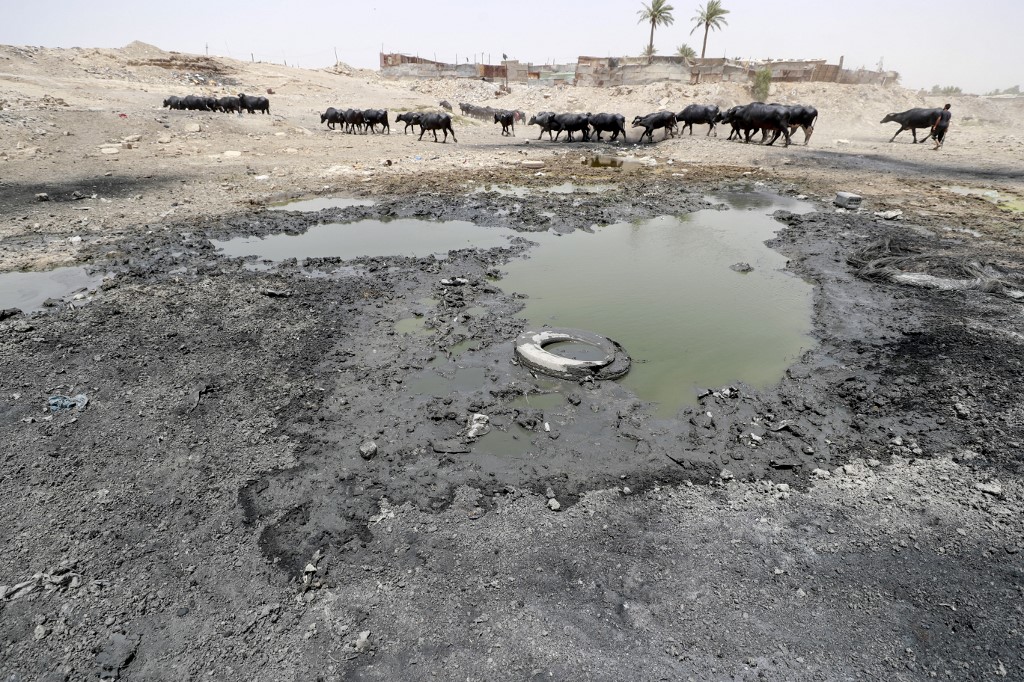Iraq on Saturday asked Ankara to increase the flow of water downstream along the Tigris and Euphrates rivers, as both countries face droughts and tensions over resource management, Agence France-Presse reported.
Baghdad regularly complains that dams constructed in neighboring countries impact its river levels.
Water Minister Mehdi al-Hamdani and the Turkish president’s special representative for Iraq, Veysel Eroglu, discussed “quantities of water arriving in Iraq through the Tigris and Euphrates” from Turkey, an Iraqi statement said.
Hamdani asked Turkey via videoconference “to re-examine the amounts of water released, in order to allow Iraq to overcome the current water shortage”, it added.
Eroglu said he would pass on the request to water authorities in Ankara to “increase the amounts of water released in the coming days, according to (Turkey’s) available reserves”, according to the Iraqi statement.
Both sides agreed that an Iraqi “technical delegation” would visit Turkey and allowed to “evaluate Turkish dam reserves on site”.
The UN classifies Iraq “as the fifth most vulnerable country in the world” to climate change, having already witnessed record low rainfall and high temperatures in recent years.
The issue of managing water resources has raised tensions between Baghdad and Ankara.
On Tuesday, Turkey’s ambassador to Iraq, Ali Rıza Güney, sparked anger by accusing Iraqis of “squandering” water resources, calling on Twitter for “immediate measures to reduce the waste” including “the modernisation of irrigation systems”.
Hamdani responded that Ankara was assuming “the right to reduce Iraq’s water quota”.
Iraq has seen three years of successive droughts and has halved cultivated agricultural areas for its 42 million inhabitants.
“Water reserves have dropped 60 percent compared to last year,” a government official said this Wednesday, Iraq’s INA news agency reported.
Water levels arriving from the Tigris and the Euphrates were around a third of the average over the past century, according to the figures.
